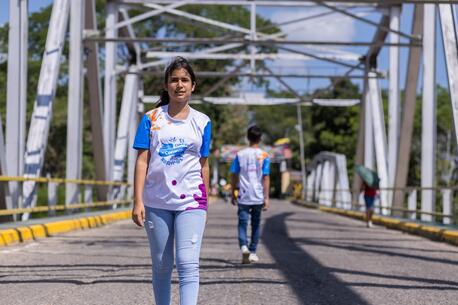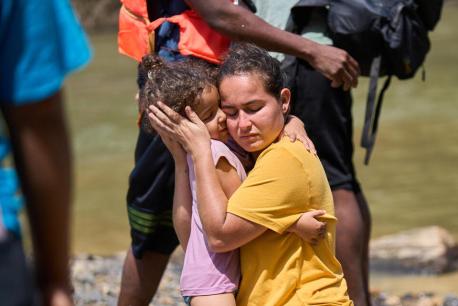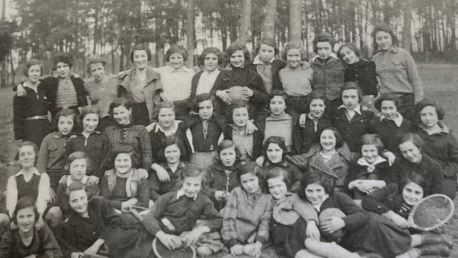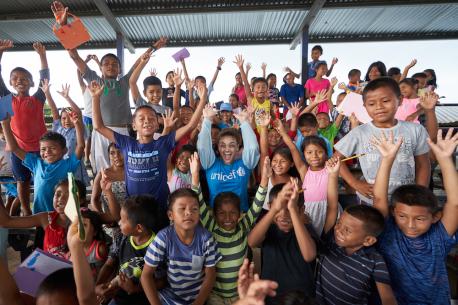
How UNICEF Supports Venezuelan Migrant Children in Colombia
"We've had to move to many places," says 14-year-old Aime, whose family left Venezuela's Bolívar State for Colombia. "And we always lose many things."
Migrating children need protection from violence, trafficking, family separation and forced recruitment
Since 2014, nearly 8 million people have fled political unrest and socioeconomic upheaval in Venezuela, creating the largest refugee crisis in modern Latin American history.
Colombia hosts the greatest number of Venezuelans in the region: 2.8 million people — including 800,000 children and adolescents. Migrant children and adolescents in Colombia face a number of threats including violence, trafficking, family separation and forced recruitment by armed groups.
"We can't leave our houses after 9 p.m.," says 14-year-old Aime, who left Venezuela and moved to Colombia with her family. "We can't even go to the store because of the fear that they'll take us away or they will recruit us. Young people are taken, without understanding what they are going to do to them. They are taken by force."
Video: Meet Aime, 14 — "I hope all children in Colombia have protection, that they are free."
Helping migrant children and adolescents adapt and thrive
UNICEF works with partners to protect the well-being of migrating children and adolescents, from essential health and nutrition services to child protection, family tracing and prevention of gender-based violence. "What I miss most from Venezuela is my family, my friends and the traditions we had years ago when we were all together," says Aime.
To help children adjust, UNICEF backs community-based mental health and psychosocial support services, and connects children with access to formal and informal education, including early childhood learning.
UNICEF, they've helped me a lot. They've taught me about freedom of expression: that teenagers can be leaders, that we can think beyond our limitations and that we can create a future for ourselves. — Aime, 14
UNICEF programs also teach children about their rights, encourage civic engagement and give hope to adolescents caught in difficult circumstances. "UNICEF, they've helped me a lot," Aime says. "They've taught me about freedom of expression: that teenagers can be leaders, that we can think beyond our limitations and that we can create a future for ourselves.
"My dream for the future is to be a politician," Aime continues. "I like politics because it defends our rights, and it allows us to express our thoughts and listen to the people, who also have ideas for us. People who come to recruit children, I'd like to change this. I hope all children in Colombia have protection, that they are free."
In 2025, an estimated 13.4 million people, including 4.2 million children and 4.5 million refugees and migrants, will require humanitarian assistance in Colombia. Help UNICEF reach more children in need. Please donate today.
Learn more about UNICEF's work for children in Colombia in 2025.
HOW TO HELP
There are many ways to make a difference
War, famine, poverty, natural disasters — threats to the world's children keep coming. But UNICEF won't stop working to keep children healthy and safe.
UNICEF works in over 190 countries and territories — more places than any other children's organization. UNICEF has the world's largest humanitarian warehouse and, when disaster strikes, can get supplies almost anywhere within 72 hours. Constantly innovating, always advocating for a better world for children, UNICEF works to ensure that every child can grow up healthy, educated, protected and respected.
Would you like to help give all children the opportunity to reach their full potential? There are many ways to get involved.





